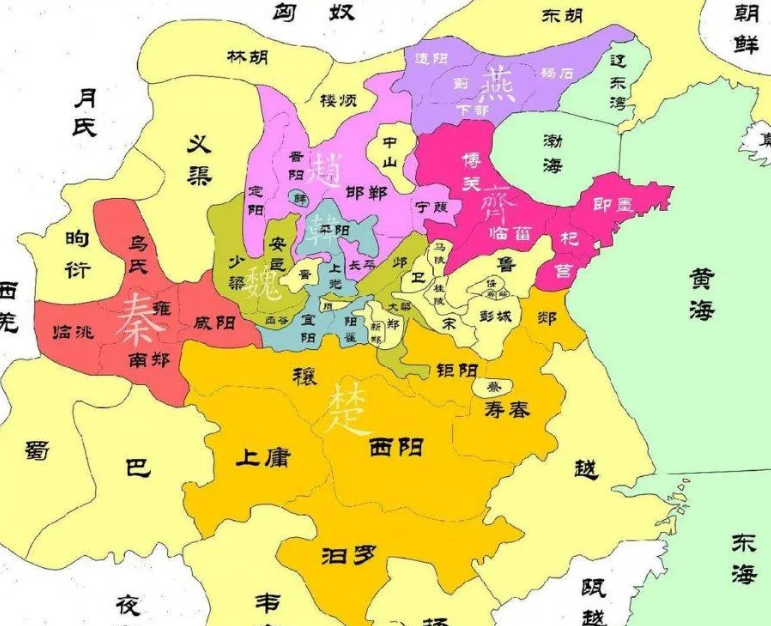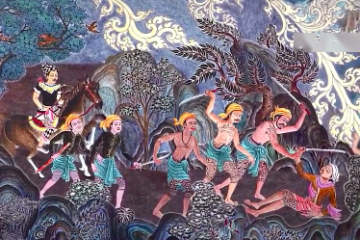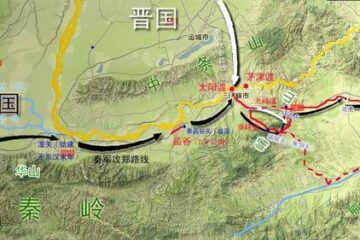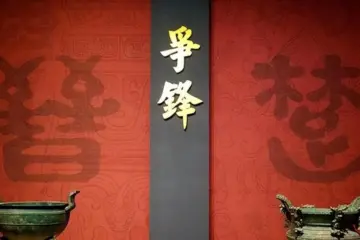In the late Spring and Autumn period of ancient China, the state of Jin was divided among three major families.
During the late reigns of King You and King Li in the Zhou Dynasty, the virtue of the rulers declined, and the fate of the Zhou dynasty deteriorated further.
The system of rituals and regulations collapsed, with widespread social disorder.
The lower classes suffered from oppression, while the upper class experienced decline and decay.
Feudal lords and monarchs indulged in reckless conquests.
The gentry class arrogantly intervened in political affairs.
Overall, the moral and educational standards of the society had deteriorated significantly.
However, the political regime established by King Wen and King Wu of Zhou managed to continue because their descendants were able to hold onto their royal positions.
Why is this so?
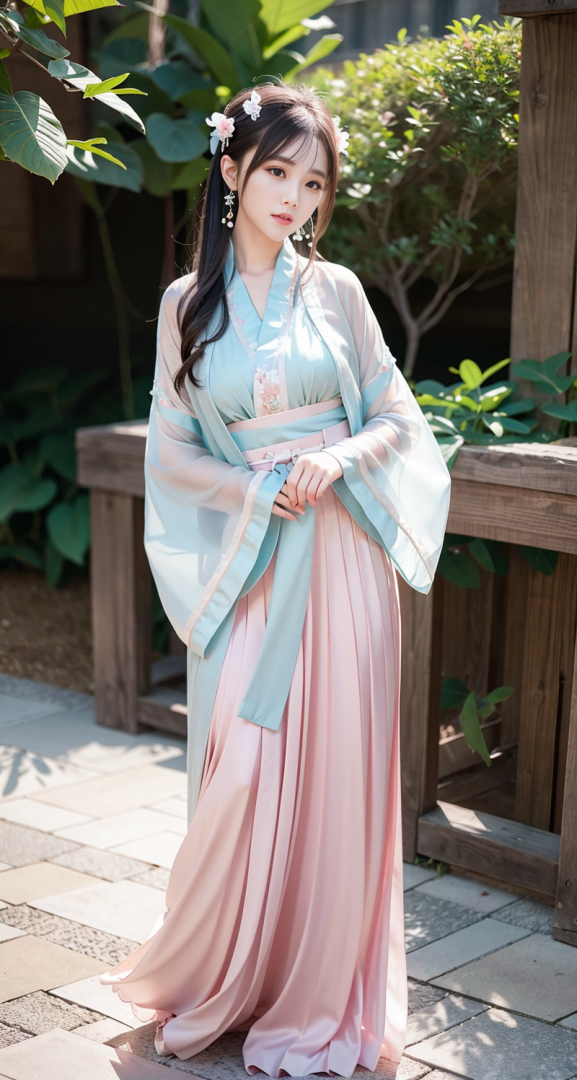
It is because Duke Wen of Jin had made significant contributions to the Zhou Dynasty, and he requested permission from King Xiang of Zhou to be buried in the royal tombs after his death.
However, King Xiang refused, saying, “The Zhou royal system is clear. Having two emperors without a change in dynasty is something that you, Duke Wen, opposed. If you have your own territory and wish to have a tomb, why do you need to seek my permission?”
Duke Wen of Jin felt fear and did not dare to violate the ritual norms.
Therefore, the territory of the Zhou royal family was not larger than that of the Cao and Teng states, and they did not govern more subjects than the Zhu and Ju states.
However, after several hundred years, they still held the position of the suzerain of the world.
Even strong states like Jin, Chu, Qi, and Qin did not dare to surpass it.
Why is this so? It is simply because the Zhou kings still retained the title of the Son of Heaven.
Let’s take a look at Ji Shi from the state of Lu, Tian Chang from the state of Qi, Bai Gongsheng from the state of Chu, and Zhi Bo from the state of Jin.
Their power was strong enough to drive out their rulers and establish their own rule.
However, they did not dare to do so.
Is it because they lacked the strength or because they were unwilling in their hearts?
It is only because they were afraid of usurping the royal position and violating their status, which would invite condemnation from the entire world.
Now, the three major families of the Jin state are oppressing and disregarding their ruler, dividing the state of Jin among themselves.
Instead of dispatching troops to subdue them, the Zhou king, who holds the title of Son of Heaven, bestows them with titles and ranks, placing them among the ranks of feudal lords and monarchs.
By doing so, the Zhou dynasty relinquishes its only remaining claim to legitimacy.
The ritual and moral teachings of the former kings of the Zhou dynasty have completely disappeared at this point!
Some people believe that the Zhou royal family was already in decline at that time, while the three powerful families in the Jin state were strong.
Even if the Zhou king did not want to acknowledge them, how could he possibly achieve that?
This view is completely wrong.

Although the three families in the Jin state were powerful, if they intended to openly violate the principles of propriety and righteousness regardless of the world’s condemnation, they would not have sought the approval of the Zhou king; instead, they would have established themselves as rulers independently.
To establish oneself as a ruler without seeking the approval of the Son of Heaven is an act of rebellion.
If there were virtuous and righteous feudal lords like Duke Huan of Qi or Duke Wen of Jin, the world would definitely uphold the principles of propriety and righteousness and launch a punitive expedition against them.
Now, the three families in the Jin state have sought the approval of the Son of Heaven, and the Son of Heaven has granted it.
They have become feudal lords by obeying the commands of the Son of Heaven.
Who can then launch a campaign against them?
Therefore, the fact that the three families in the Jin state have become feudal lords is not due to their destruction of ritual and moral teachings.
It is precisely because the Zhou Son of Heaven himself has undermined the ritual and moral teachings of the Zhou dynasty.
